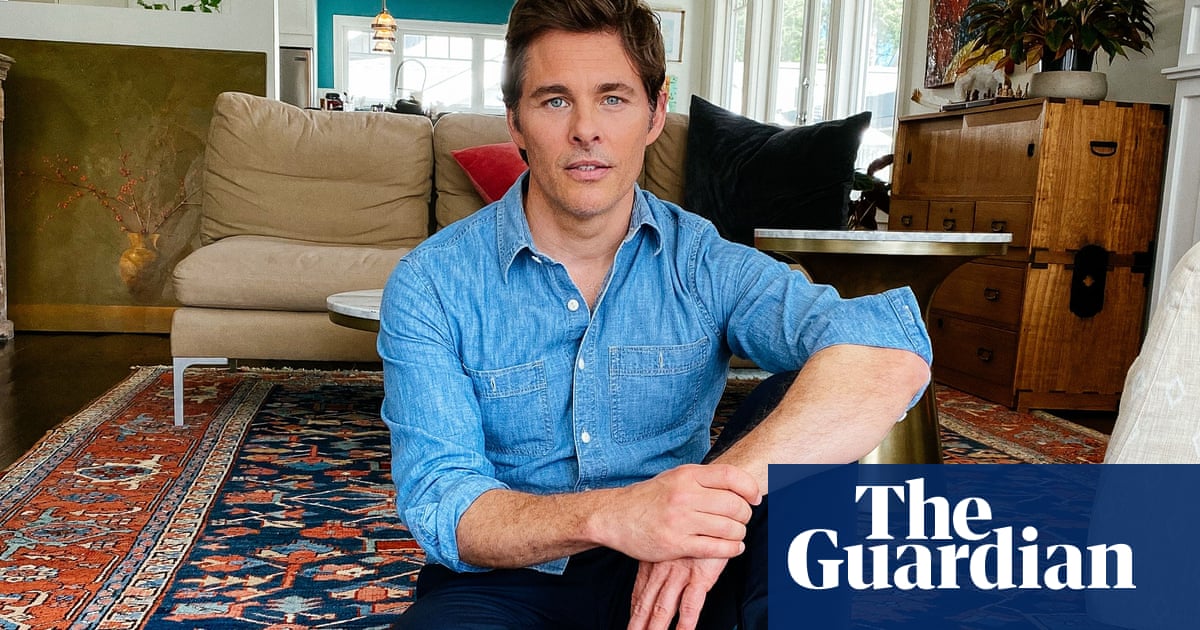
Acting is all about immersing yourself in a character, embracing someone else’s reality and leaving yourself behind in the process. That is, unless you go for the ultimate role: yourself. For those who have been unable to resist the allure of the familiar, appearing as a heightened version of themselves in a film can lead to one of the most intriguing performances of their career.
Nicolas Cage is the latest actor to put his on- and off-screen persona under the white-hot glare of the Hollywood microscope in The Unbearable Weight of Massive Talent, a bracingly original meta-comedy. Not only is he playing himself – albeit a more cash-strapped version facing financial ruin – he also stars as his imaginary alter ego: Nicky (a Wild At Heart-era Cage who has been eerily de-aged with CGI).
In recent years, on screen and off, Cage has garnered a reputation for eccentricity, to put it mildly, but he has been at great pains to stress just how far he is from this fictionalised version of himself, even though he also landed himself in serious debt after reportedly spending his $150m fortune. “I have a lot of quiet moments at home with just my cat, reading,” he told the Hollywood Reporter last month. “Do we want to show any of that? No, because it’s not fun.”
Showing A-list stars on an egotistical rampage – now that’s fun. Usually, when actors portray themselves in films, it’s played for laughs, although there has been the occasional foray into drama. “We don’t really know what an actor is like in reality, so what they’re actually performing is a version of themselves that is known and disseminated in culture, in films and by chatshows,” says Dr Andrew Stubbs, senior lecturer in film, media and communication at Staffordshire University.
The most successful performances within this niche tend to either exaggerate an actor’s public image or play against it completely. This is why Bill Murray’s cameo in Zombieland was so effective: he leaned into his off-screen persona as a lovable eccentric, the kind of celebrity who turns up to a stranger’s engagement photoshoot and crashes stag dos. In Zombieland, Murray hides out in his huge mansion as the zombie apocalypse rages on around him, pretending to be one of the undead when he ventures out, which just seems like a very Bill Murray thing to do.
Meanwhile, Keanu Reeves’s performance as a smug hipster parody of himself in Always Be My Maybe is a million miles away from his reputation as one of Hollywood’s nicest celebrities, long heralded for being sensitive, humble and unfailingly good natured. Definitely not the kind of person who would inspire an I Punched Keanu Reeves rap from a love rival, as he does in Nahnatchka Khan’s romcom.
An actor playing themselves in a film also opens up a chance for reinvention. Take Neil Patrick Harris, who appears as Cage’s agent in The Unbearable Weight of Massive Talent. Before he starred in Harold & Kumar Go to White Castle, he was primarily known for his role as wholesome medical wunderkind Doogie Howser in the US sitcom. His performance as a satirical version of himself in the stoner comedy and the two sequels that followed reinvigorated his career. Playing an arrogant sleazeball with a predilection for vast amounts of cocaine and strippers allowed him to transition into more adult parts. A year later, he joined the cast of How I Met Your Mother as brash womaniser Barney Stinson.
“These films are an opportunity to enhance actors’ brands,” says Stubbs. “Taking on these roles, they’re often required to be quite self-conscious and self-deprecating. Those are qualities that are highly valued in our society. So in that sense, it helps the actor to shed any ideas about their egotism.”
There have been notable performances from female actors playing themselves in films. Julia Roberts went meta on meta as the wife of a con artist pretending to be Julia Roberts as part of an elaborate heist in Ocean’s Twelve. Then there is Megan Fox’s cameo in The Dictator, which takes a dig at her overly sexualised image, and Emma Watson shows up wielding an axe in apocalyptic comedy This Is the End.
But when it comes to celebrities playing themselves, especially in lead roles in films, most of the time, it’s done by a white male actor. Women and people of colour are sidelined in supporting parts, if they appear at all – just as they are in the wider film industry. “Actresses’ careers tend to be shorter, they have fewer opportunities to create a successful career and sustain it through the years, so they have to be much more careful,” says Helen O’Hara, author of Women vs Hollywood: The Fall and Rise of Women in Film.
Plus, there’s the ever-persistent misconception that women just aren’t as funny as men. They’re not even being given the opportunity to try, she says. “A lot of these [parts] come along as fun cameos with your friends. The comedy groups tend to be quite close-knit groups of men.”
Ben Affleck and Matt Damon, for instance, hammed it up hilariously in a guest appearance spoofing their Good Will Hunting success in Jay and Silent Bob Strike Back, because they’re friends with the director Kevin Smith. This Is the End features a host of celebrity cameos but the core clique of the film – its co-director Seth Rogen, James Franco, Jonah Hill, Jay Baruchel and Danny McBride – are close friends who constantly pop up in each other’s films. “Women have much more to lose than men do, if it goes wrong,” says O’Hara. “People are much quicker to believe that women are divas. So it’s much harder to poke fun at themselves while reinforcing those stereotypes, which could be very damaging to their career.”
At the same time, these roles might initially seem lighthearted and playful, but in fact they often cast a satirical eye over the myth of stardom: not just how it’s created by an actor and the Hollywood machine, but also how the public buys into it as well. “It can prompt the audience to consider how a star might have been mistreated or misrepresented by paparazzi and the press, and think critically about their star image rather than accepting it at face value,” says Stubbs.
Despite a string of classy dramatic roles on stage and screen, John Malkovich’s most celebrated performance is as himself in Being John Malkovich. Director Spike Jonze’s audacious comedy revolves around Craig (John Cusack), a puppeteer who discovers a magical portal into the Dangerous Liaisons actor’s mind – and promptly sets up a business selling tickets for $200 a pop so others can be Malkovich for 15 minutes. Charlie Kaufman’s ingenious script ridicules the emptiness of fame and our worship of celebrities as Malkovich – played with gleeful narcissism as he sends up his dour off-screen persona – starts to unravel spectacularly.
And that’s what these roles really are – they provide our own portal to glean what we can about celebrity culture, even though we know what we’re really seeing is a reflection from a distorted mirror, a parody of what we think stardom might be rather than the reality. Still, we’re being invited to be in on the joke and the actor is being such a good sport, so we’ll probably be laughing along, trying not to cringe too hard if it falls flat.
The Unbearable Weight of Massive Talent is in cinemas from 22 April.












